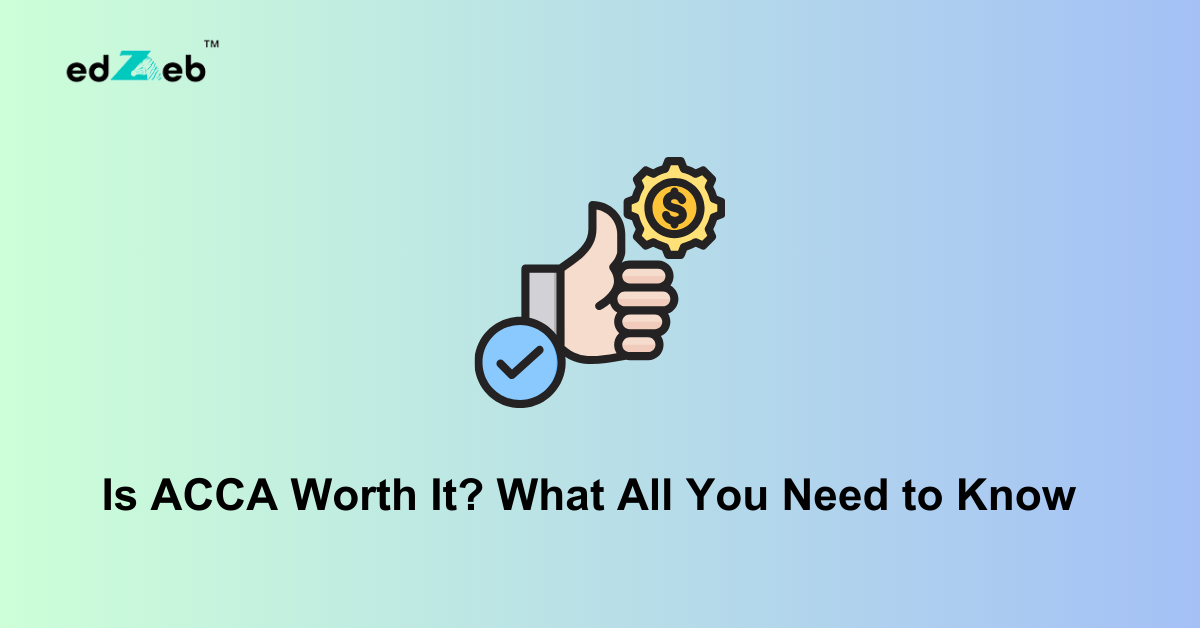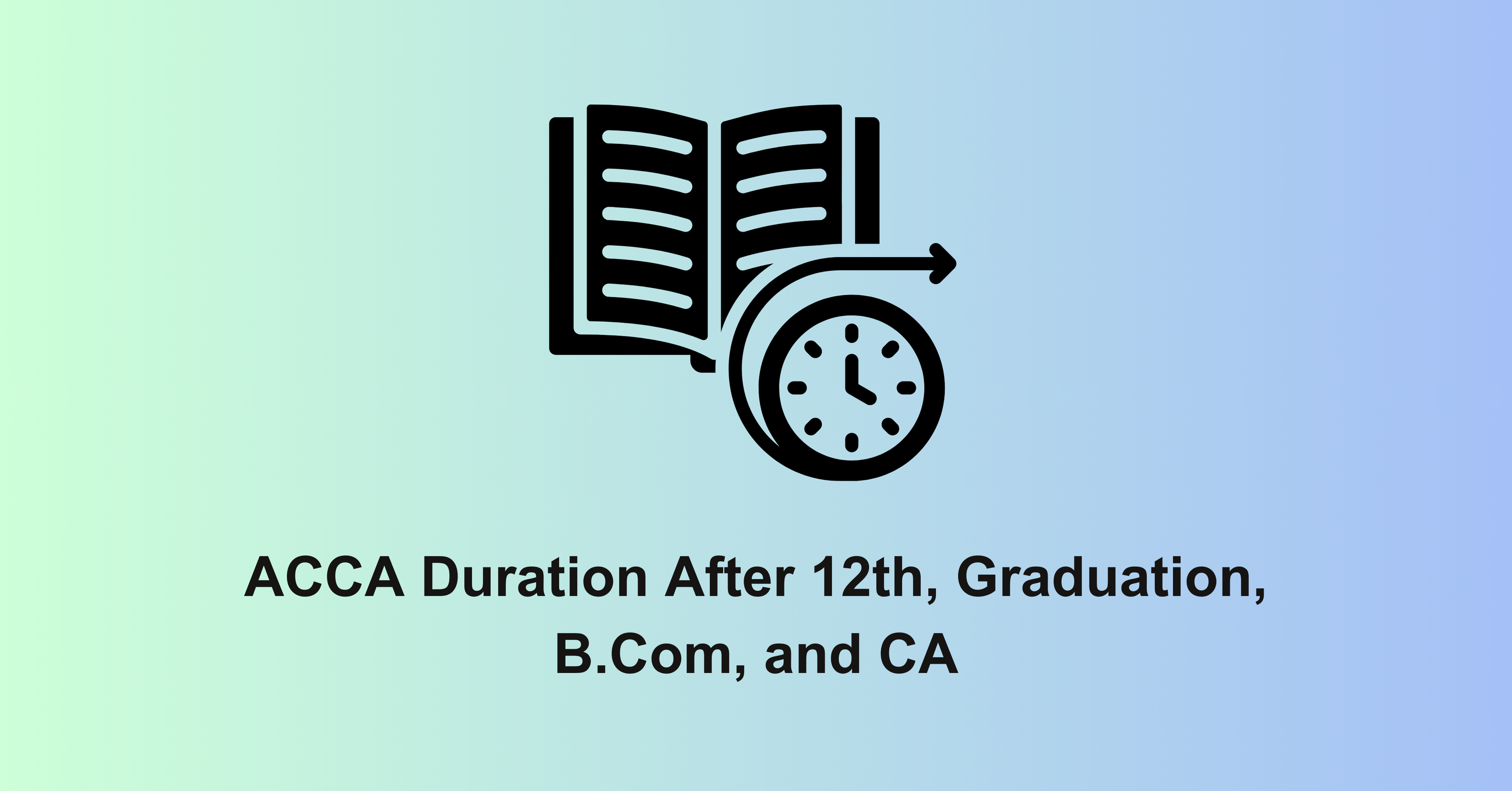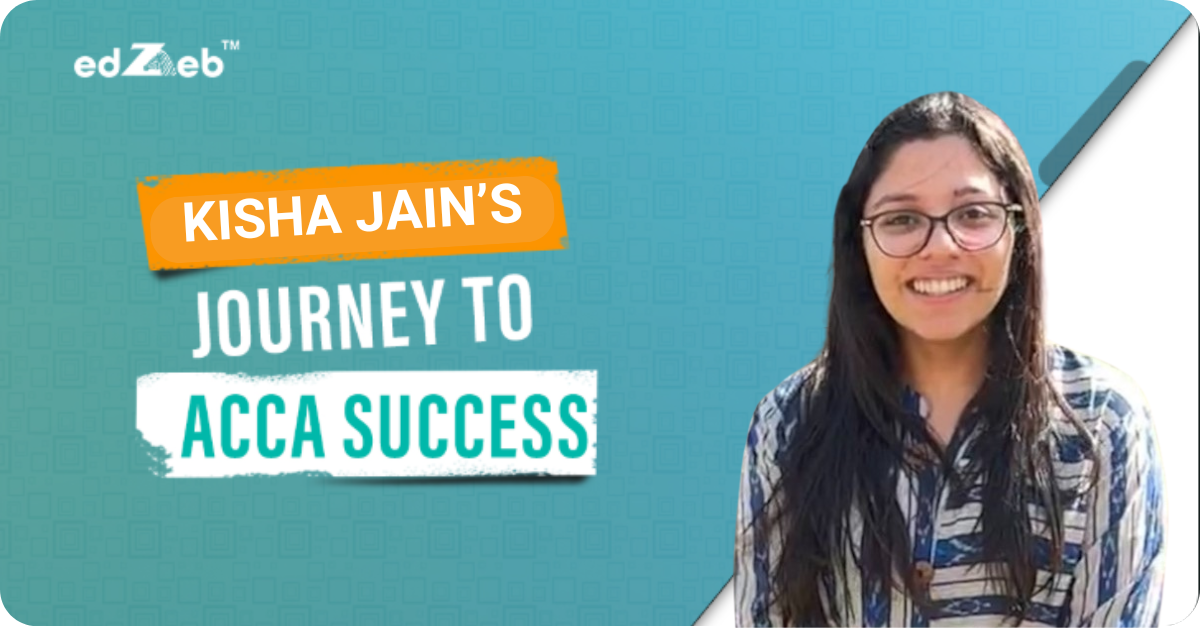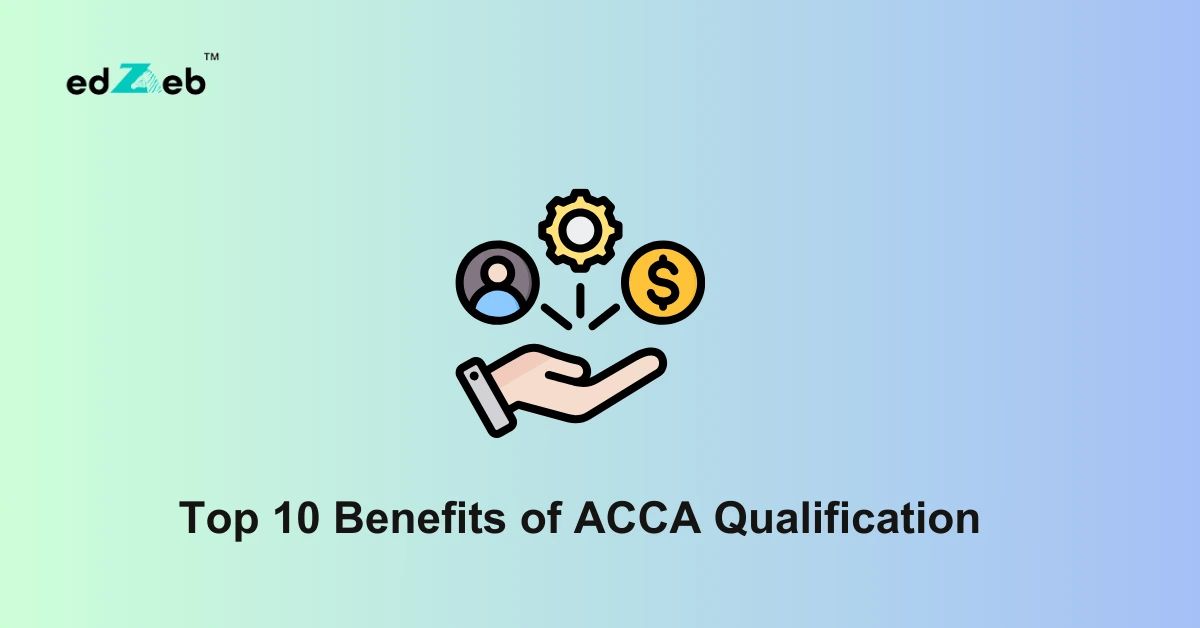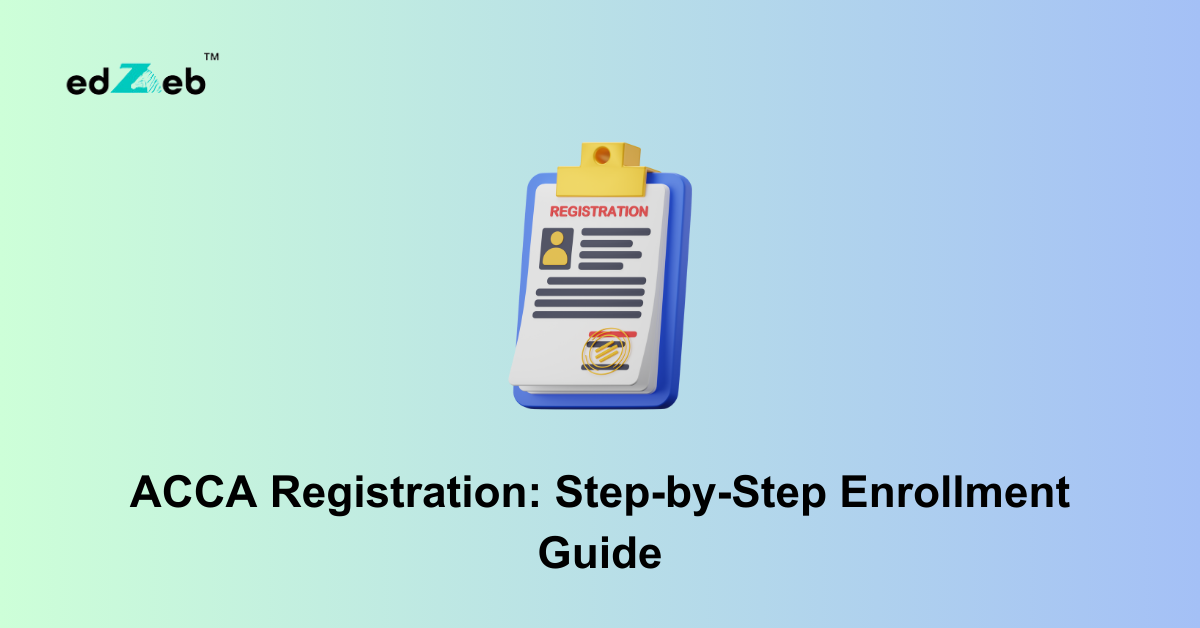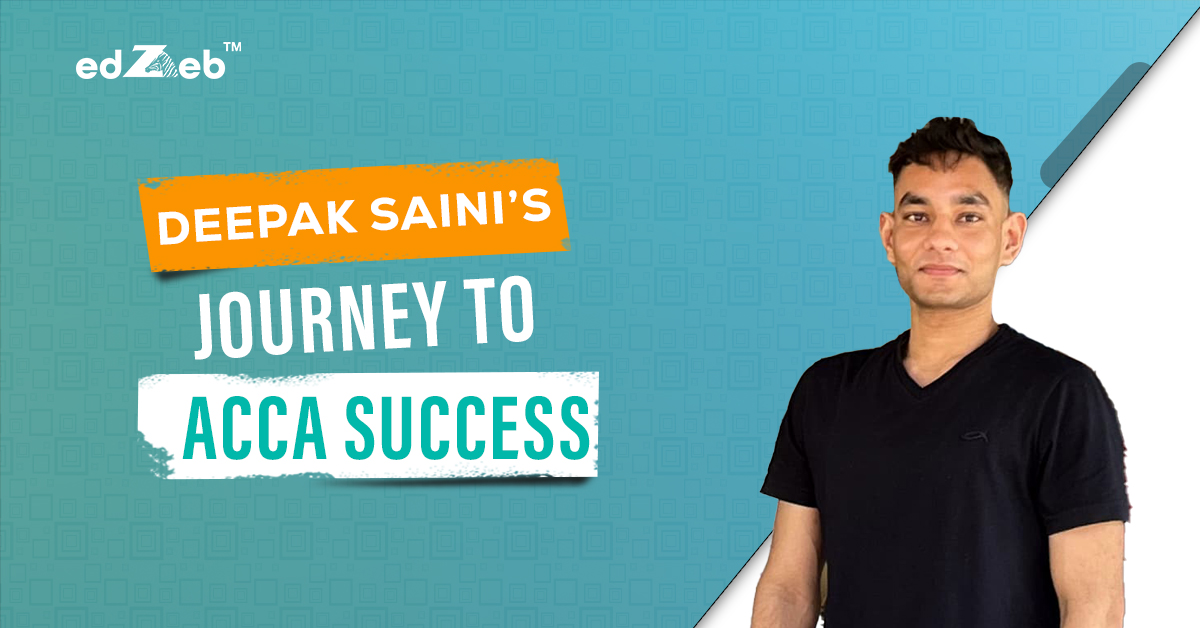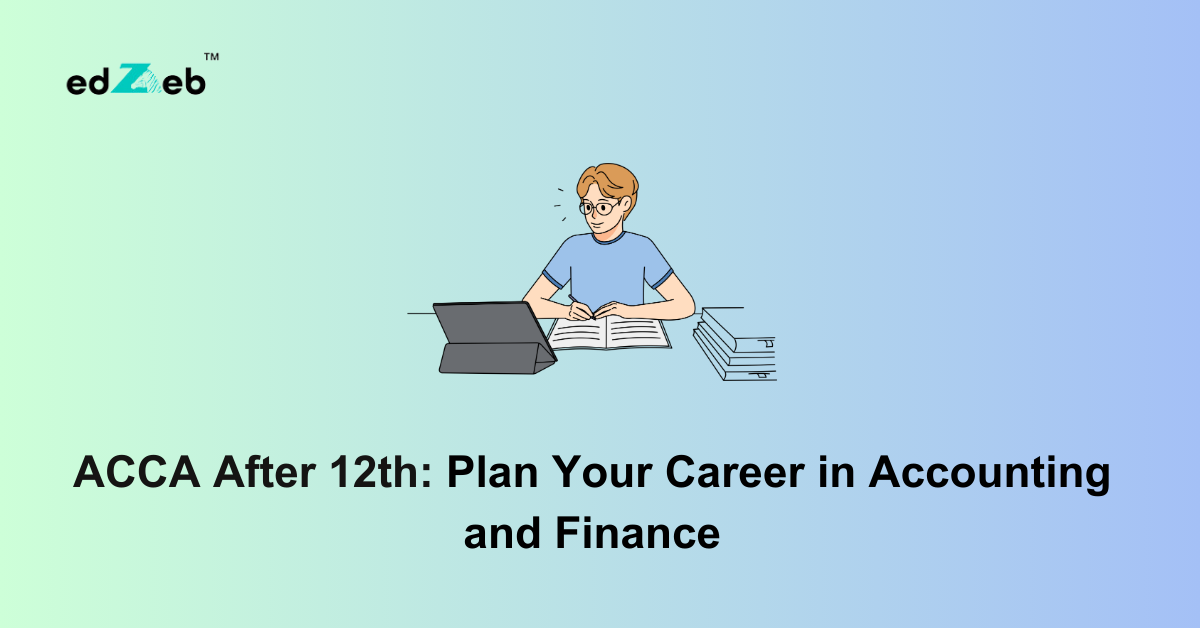
The number of courses offering specialized skills has been increasing as the finance world is advancing globally. Commerce students after passing their 12th, generally face significant confusion due to the course overload choice. It is a significant decision that can affect your whole career trajectory. Why not ACCA after 12th?
There are many around you, mostly your parents and teachers who will bombard you with choices according to their knowledge and experience. It is suggested to choose a field of study that personally interests you, one for which you have the curiosity to earn and passion to explore. This curiosity and passion will keep you motivated throughout your journey, helping you excel in the field and build a fulfilling career.
Can I do ACCA after 12th? Yes, it can be pursued by 12th-passout students from any stream. Out of many course choices, the ACCA course after 12th commerce is a considerable option. This credential significantly equips you with a skill set required by employers in the industry. In turn, this results in a successful accounting career and career advancement as compared to your peers without a professional credential like ACCA After 12th Commerce. So plan your career in accounting and finance and read further to know more in detail.
Table of Contents:
ACCA: An Overview
ACCA credential is one of the most prestigious accounting qualifications. It stands for Association of Chartered Certified Accountants, a global organization for professional accountants. An ACCA aspirant has to appear for 13 exams divided into three levels:
- Applied Knowledge Level
- Applied Skill Level
- Strategic Professional Level
As you clear the ACCA Level 1 exam, your educational qualification is considered equivalent to a diploma holder. ACCA Level 2 passout is an advanced diploma holder and ACCA Level 3 passout is an ACCA affiliate. After clearing all these exams, you must complete 36 months of relevant work experience in an accountancy or finance role. Thus, after gaining 3 years of experience you can become an ACCA member.
Why Should You Choose ACCA After 12th
Choosing ACCA after 12 (senior secondary) can help you fast-track your journey towards a rewarding career in finance and accounting. Many compelling reasons can answer your question—why opting for ACCA course after 12th commerce is a smart decision?
Firstly, ACCA is the right path towards specializing in accounting and finance. Taking up the ACCA course after 12th will give you a head start to enter the job market quicker unlike your peers enrolling in the traditional courses. By the time they get ready to start specializing, it may take years. So, you will start working earlier than many of your peers.
Can I do ACCA after 12th? Does a question like this disturb you? We have the answer! You should know that ACCA is a flexible course to continue. Its exam structure allows you to manage your study with any of your other personal or professional commitments. There is no need to choose only one, both ACCA and your commitments can go hand in hand.
Moreover, ACCA is globally recognized offering you to work in 180 countries. It showcases how versatile ACCA can be and the credential allows you to work in high-demand roles in MNCs building a global career. The ACCA syllabus equips you with both in-depth technical knowledge and practical business skills that align with the demands of top employers worldwide.
Last but not least, Starting the ACCA course after 12th will help you connect with fellow ACCA students, professionals, and industry experts. It is a vast community and this network will guide you to grow both professionally (internships) and personally (mentorship).
ACCA Eligibility After 12th
Coming to the ACCA eligibility after 12th, it is important to get started with the admission process. It is highly accessible to students from various educational backgrounds. Thus, to enroll in the ACCA program after 12th, you must meet the following requirements:
Age Requirement
You shall be 18 or older.
Educational Qualification
You must have passed 12th standard (Higher Secondary) from a recognized board or an accredited university.
Minimum Percentage
To pursue ACCA course after 12th, you must score a minimum of 65% in subjects like English, Mathematics, and Accountancy. Also, you need to score a minimum of 50% in other subjects of study as the minimum ACCA eligibility after 12th.
Stream Flexibility
ACCA course after 12th is pursued by students from various streams. Whether you have a commerce, science, or arts background. One thing to note here is that students belonging to non-commerce backgrounds need to put in extra effort. So that they can grasp accounting fundamentals in the initial stages but once it is done, then the ACCA journey becomes easy.
ACCA Course Duration After 12th
The ACCA duration After 12th depends on various factors. These may be the number of exams you clear each year and any exemptions you may receive based on your qualifications.
The ACCA course duration after 12th generally takes 3 years to complete all 13 exams provided you study consistently and pass all the exams in one go. Some students may take more time to pass their exams as they reappear for exam success.
We, at edZeb, take care of such things and make sure to provide end-to-end support with our expert faculty, flexible class schedule and vast study material, revisionary lectures, and detailed mock test feedback so that our students ace their ACCA exams in one go.
ACCA allows students to attempt up to eight exams per year. It means the pace of completion depends on personal preferences. Also, there are chances of getting exempted if students after class 12th opt to do B.Com from any of the 82 ACCA-approved colleges. These students may be eligible for 5 ACCA paper exemptions. Otherwise, you must study all 13 exams and prepare well for acing their accountancy skills.
So, the ACCA duration After 12th is three or more years, depending on your caliber and grasping power you can do it in three or less than three years.
Understand the ACCA Exam Pattern
The ACCA qualification is flexible and it caters to students at various stages of their academic and professional journey. After completing 12th, it is possible to begin the ACCA course structured into three levels:
1. Applied Knowledge Level
At the foundation level, all 3 papers are 100% QTQs (Objective Type Questions) based exams and you need to secure 50% to pass the following papers.
- Business and Technology (BT)
- Management Accounting (MA)
- Financial Accounting (FA)
2. Applied Skills Level
The ACCA Level 2, Corporate and Business Law contains objective-type questions and it also needs 50% to clear the exam. In the case of the other remaining exams (FM, FR, PM, AA, and TX) 60% objective type questions and 40% subjective questions. A student securing 50% will clear the following individual exams.
- Corporate and Business Law (LW) – GLO
- Performance Management (PM)
- Taxation (TX)
- Financial Reporting (FR)
- Audit & Assurance (AA)
- Financial Management (FM)
3. Strategic Professional Level
In total, you have 2 essential papers and choose 2 out of 4 optional papers. All of these 4 papers are completely subjective. To pass these you need a passing percentage of 50% per exam listed below.
Essentials:
- Strategic Business Leader (SBL)
- Strategic Business Reporting (SBR)
Optional (Choose Two):
- Advanced Financial Management (AFM)
- Advanced Performance Management (APM)
- Advanced Taxation (ATX)
- Advanced Audit and Assurance (AAA)
Each ACCA level covers different aspects of accounting and finance. Starting from the basic concepts to more advanced and covering more advanced and complex topics. ACCA exams are conducted four times a year — in March, June, September, and December. However, Knowledge Level exams can be taken on demand, providing greater flexibility for students at the beginning of their ACCA journey.
ACCA Course Fee
Collectively, the ACCA course fee can range from INR 2.5 Lakhs to INR 4 Lakhs for the entire qualification. It depends on various factors like the number of attempts, exemptions, and any coaching classes or institutes. Let us have a look at the approximate money that you will spend to gain this prestigious credential.
- The ACCA registration fee: INR 7,625
- ACCA exemption fee for each paper: INR 10,000
- Annual subscription fee: INR 10,000
- Knowledge Level exam: INR 8,243
- Skill Level exam: INR 10,734
- Professional Level exam: INR 13,054
edZeb’s coaching fee is approximately INR 1 Lakh in total. Otherwise, the cost varies depending on the mode of classes you choose to study and whether you go to study for an exam, a level, or a combo.
ACCA After 12th Tips for Studying
ACCA after 12 (senior secondary) is a rigorous program to complete by clearing all 13 papers. So, do not get overwhelmed by How to do ACCA after 12th. It needs sheer dedication and determination, strategic planning, and effective study habits to become a qualified ACCA professional. You shall adopt some good habits to simplify things for yourself.
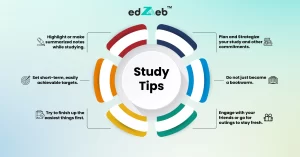
- Stay disciplined.
- Plan and Strategize your study and other commitments.
- Do not just become a bookworm.
- Participate in social activities.
- Engage with your friends or go for outings to stay fresh.
- Manage time properly.
- Sleep is a must, it helps you stay rejuvenated.
- Exercise will lower your stress levels.
- Highlight or make summarized notes while studying.
- Set short-term, easily achievable targets.
- Ask for help, when stuck somewhere.
- Try to finish up the easiest things first.
- Revise what you study for better retention.
These tips while studying will help you keep up with the strenuous ACCA program until complete and you pass with flying colors. These tips answer–How to do ACCA after 12th. And edZeb is here to support you every step of the way. We are known for offering expert guidance, quality offline/online resources, and a community of fellow learners. Our certified faculty is committed to helping you understand complex concepts. The comprehensive study material we provide will enhance your learning experience. With edZeb’s dedicated support, you can confidently tackle the ACCA challenges and achieve your career aspirations in finance and accounting.
Conclusion
Pursuing ACCA after 12th is an important decision. It can accelerate your career in the field of accounting and finance. ACCA being a globally recognized credential provides specialized knowledge as well as practical skills needed to excel in today’s competitive job market. Our ACCA program provides the flexibility to study at your own pace. So, take the first step today towards a prosperous career in accounting and finance!
FAQ’s
What is the ACCA course duration in the UK?
The ACCA course duration is 3 years but some trainees also take more than 3 years to complete their course of study in the UK.
Is ACCA expensive in India?
ACCA is an affordable course and considering all the benefits it offers counting the global, highest paying jobs is par having any debate over the ACCA course fee.
Is ACCA in demand in India?
Yes, as the accounting and finance industry is booming, so does the demand for ACCA professionals. Also, the presence of Big 4 companies in India is also expanding the scope for ACCA professionals in India.
Can I do ACCA after the 12th without math?
The ACCA eligibility is flexible enough to accommodate 12th-pass students from any stream provided they must work really hard to understand accounting concepts initially.
Is ACCA tougher than CA?
ACCA is easier than CA. The CA is considered the toughest credential to earn due to its rigorous curriculum unlike ACCA as it is more flexible.
How to become ACCA after 12th?
ACCA eligibility is open to all 12th-pass students from any stream so, you can enroll yourself with us at edZeb for comprehensive learning and practical knowledge of accounting and finance principles. We support you until you pass all your 13 ACCA exams. As you become eligible for work, our placement cell will find a suitable internship for you to apply your knowledge and skills to real-world situations.


